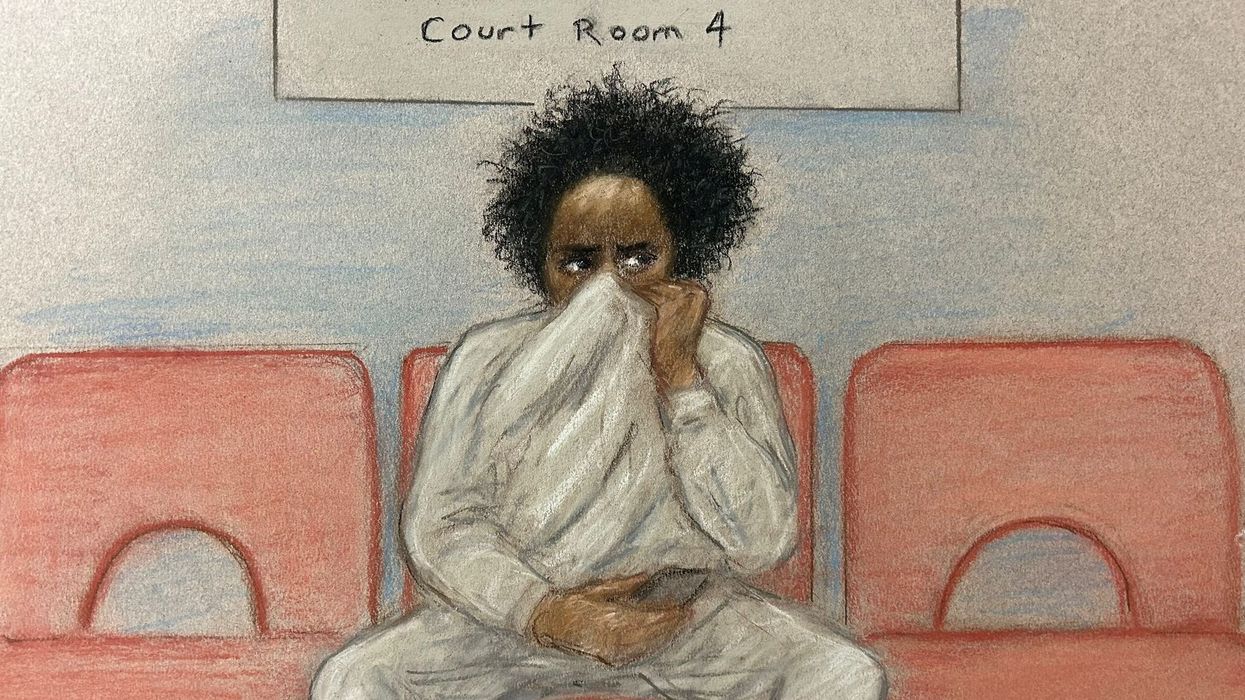SOUTH Asians diagnosed with lupus may be helped by a fresh strategy using artificial intelligence (AI) to develop new drugs to fight the disease, experts believe.
People of Asian origin in the UK are more likely than white communities to have the incurable long-term condition, and are at a greater risk of having a more severe form of the disease, previous research has found.
Symptoms include joint pain, skin rashes and extreme tiredness. The chronic auto-immune disease is when the immune system mistakenly identifies the body’s own tissues as foreign and attacks them.
Pharmaceuticals giant AstraZeneca and firm BenevolentAI are working together on therapeutic options for people with the condition, known as systemic lupus erythematosus, using an AI-driven drug discovery platform.
Michael R Barnes, professor of bioinformatics at Queen Mary University of London, said the announcement “is potentially promising for south Asian populations”.
He told Eastern Eye: “Given that lupus disproportionately affects south Asians with higher incidence, severity, and worse outcomes compared to white populations, this advancement in target identification could lead to more effective treatments, potentially improving the quality of life and clinical outcomes for south Asian patients who suffer from this debilitating auto-immune disease.
“The AI-driven approach to drug discovery, combined with AstraZeneca’s existing track record in lupus medicine development, signifies a significant step forward in addressing the specific needs and challenges faced by this high-risk group.”
Barnes added that lupus was a complex disease affecting many parts of the body such as the joints and the kidneys, which each require different medications.
He said the possible reasons for the higher rate of the disease in the south Asian population could be genetic as well as socio-economic.
The partnership between AstraZeneca and London-based firm BenevolentAI involves analysing vast amounts of data in order to uncover potential new drug options that traditional discovery methods might miss.
Dr Chris Papadopoulos is principal lecturer in public health at the University of Bedfordshire. He told Eastern Eye: “Lupus is also notoriously difficult to treat, with current treatments often falling short in disease control and carrying significant side effects.
“Therefore, the hope is this type of AIdriven approach not only accelerates the search for better therapies that could manage symptoms, but also treatments that can lead to remission and also even a cure.
“While these kind of advancements are exciting, we must remember that diseases like lupus affect different populations in unique ways. For instance, research indicates that south Asian patients are at a higher risk of developing lupus compared to the general population.
“Linked to this, research is examining the genetic factors that may contribute to the higher prevalence of lupus in south Asian populations. This research could lead to more targeted treatments and prevention strategies for this population in the future, especially through leveraging new technologies such as artificial intelligence.”
Dr Papadopoulos added that south Asian patients often face specific challenges that can impact their disease management and overall health outcomes, including difficulties in accessing healthcare due to socio-economic factors, language barriers, and cultural beliefs that may influence their understanding of the disease.
“For example, there may be a reluctance to seek medical help due to stigma associated with chronic illnesses, or a preference for traditional remedies over prescribed treatments,” he added.
“Healthcare services that are not culturally competent and sensitive can negatively affect these patients, leading to miscommunication, reduced trust in medical advice, and lower adherence to treatment plans, all of which can worsen prognosis.
“Therefore, overall, while these advancements are exciting, especially with AIdriven treatments becoming more genetically personalised and effective, it’s crucial that we also focus on developing culturally sensitive approaches to ensure all patients can benefit from these breakthroughs.”
Earlier this year, the LUPUS UK charity joined 57 other health and social care groups in July to back the National Voices’ Vision for improving patients’ experience of diagnosis.
The proposals fall under three themes – what can be done in the short term; offering wraparound support for newly diagnosed patients; and what needs to happen in the longer term.
Hasina Chaudhry, from London, said her friend of Pakistani origin was diagnosed with lupus in her early 30s.
Chaudhry, 34, said: “My friend spends a lot on medication, there are various pills she has to take every day.
“She gets tired very quickly, is losing her hair, gets body aches and is in and out of hospital.
“I hadn’t heard of lupus before, and neither had she – she thought her symptoms were arthritis.”



















 Instagram/charli_xcx
Instagram/charli_xcx 
 Fatima Sana Shaikh opens up about her struggles with the casting couch, shedding light on her journey in the film industryInstagram/fatimasanashaikh
Fatima Sana Shaikh opens up about her struggles with the casting couch, shedding light on her journey in the film industryInstagram/fatimasanashaikh